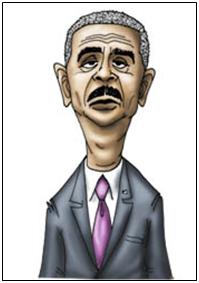Eric Holder will be stepping down as Attorney General later this year, ending a six year term that has been highlighted by the Fast and Furious and Associated Press wiretapping scandals.
The announcement came on the same day a federal judge ordered documents related to the Fast and Furious scandal — the so-called Vaughn index — be released that Barack Obama and Holder had sealed under the Nixonian doctrine of executive privilege against a Freedom of Information Act request by Judicial Watch and a Congressional subpoena.
“The government’s arguments for even more time are unconvincing,” U.S. District Court Judge John D. Bates said in his ruling. “[S]eventy-five days — plus another twenty-one, based in part on Judiciary Watch’s consent — is enough time for the government to prepare the index that this Court has ordered, given that this matter has been pending for over two years. The Court will therefore extend the Department’s Vaughn index submission deadline to October 22, 2014 — and no further.”
The Justice Department is expected to appeal the ruling.
By any standard, this was a dramatic expansion of the executive privilege doctrine, which was only supposed to extend to the President’s top advisors — not low-level Justice Department officials whose actions got a Border Patrol agent and hundreds of Mexicans killed.
Ultimately, the House of Representatives found Holder in contempt for defying the subpoena.
Executive privilege was originally cited by the Nixon administration to keep the infamous White House tapes out of the hands of special prosecutors in the Watergate scandal cover-up. Ultimately, the Supreme Court ordered the tapes turned over in the monumental decision, U.S. v. Nixon (1974). On one tape, eighteen minutes were missing — the White House claimed that Nixon’s secretary Rose Mary Woods accidentally deleted it. We’ll never learn what was contained. But fifteen days later, facing an imminent impeachment, Nixon resigned.
If applied to its logical extreme, one imagines a scenario where a president could pick and choose what documents to seal under the guise of executive privilege, no matter how low in the bureaucracy they originate.
In the process, he could rob Congress of its constitutional oversight role of the executive branch, or circumvent legitimate requests made under the Freedom of Information Act.
As the Heritage Foundation’s Hans A. von Spakovsky, a former Justice Department official wrote when Obama and Holder cited executive privilege, “A president must have a legitimate reason to assert executive privilege; it cannot be used for the purpose of hiding wrongdoing by administration officials, especially to block a contempt citation.”
Ultimately, that is likely what the Supreme Court will find, too, once all appeals in the Fast and Furious document case have been exhausted.
Perhaps, then, the American people can find out who ordered the Bureau of Alcohol, Tobacco, and Firearms to run guns south of the border, killing hundreds. And if we’re really lucky, we’ll find out before Obama’s term of office ends in 2017.
As for Holder, sadly, no matter what the documents show, he likely will never face prosecution for his crimes, proving that in his case, one man can truly be above the law.
Robert Romano is the senior editor of Americans for Limited Government.







